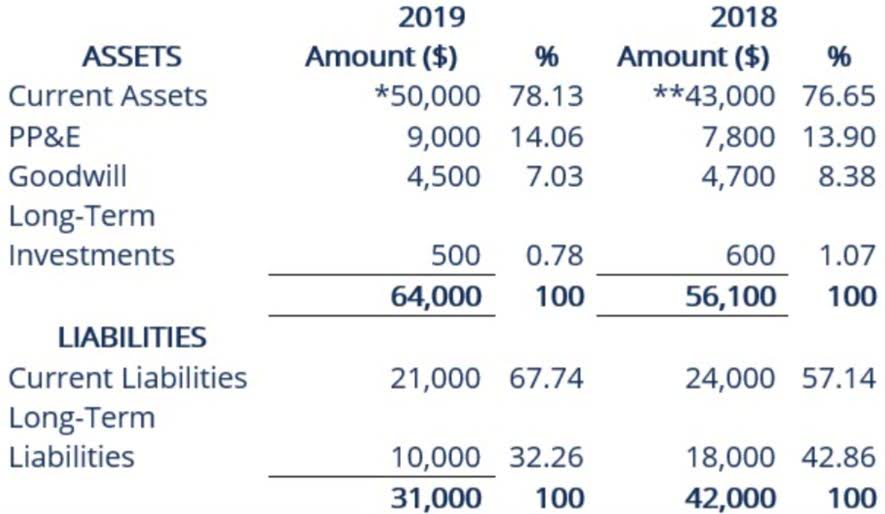
Blog
Mastering the process of preparing for audits: A step-by-step guide

If possible, conduct a self-audit or an internal audit to verify your compliance and identify any areas for improvement. Bringing in external experts can streamline the audit preparation process by offering strategic recommendations and best practices. They help businesses implement stronger internal controls, improve record-keeping, and ensure compliance with evolving regulations.
How internal controls streamline the audit process

Agile internal auditing involves iterative processes, continuous feedback, and collaboration to adapt quickly to changing business needs and deliver timely how to prepare for an audit insights. The Six Sigma approach applies data-driven methodologies to improve processes, minimize errors, and enhance operational efficiency within the audit process. Auditors will normally ask for certain evidence of your year-end audit at certain deadlines.

Step 3: Conduct an Internal Audit
Advancements in technology provide businesses with tools that can significantly enhance the efficiency of audit preparation. Automated solutions help track compliance, organize financial records, and streamline reporting processes. Different industries have specific compliance requirements that businesses must adhere to. These may include financial reporting standards, tax regulations, data protection laws, and employment laws.
- Working out of multiple disconnected systems is a recipe for disaster, especially during an audit.
- Audits confirm tax obligations have been met and can identify errors, whether intentional or unintentional.
- Create situations where they must handle deviations, equipment issues, and documentation requirements simultaneously.
- Developing a detailed schedule with clearly defined tasks and deadlines ensures that nothing is overlooked.
- Investigators understand these complexities and look for systems that maintain scientific integrity while acknowledging real-world challenges.
- Running a business means handling money wisely, and sometimes, you may need to take cash from your business…
Compiling Financial Records
- Google’s data retention policy is only six months for access log events and data.
- Ensuring that employees are well-prepared can significantly enhance the audit experience.
- The draft audit program should be shared and reviewed with the process leader.
- A tax professional, such as a Certified Public Accountant (CPA) or an enrolled agent, can represent the taxpayer throughout the process.
Beyond reading SOPs, operators should demonstrate proficiency in realistic scenarios. Create situations where they must handle deviations, equipment issues, and documentation requirements simultaneously. Video record these sessions—they make excellent training materials for future employees. Consider the experience of a biologics manufacturer who received observations related to their investigation process.

CFI is on a mission to enable anyone to be a great financial analyst and have a great career path. In order to help you advance your career, CFI accounting has compiled many resources to assist you along the path. By staying up-to-date, it reduces the time needed to track data and make changes to comply with regulations.
- The months following an FDA inspection also present a unique opportunity for organizational growth.
- The auditor will create an audit plan that approximates the amount of time each audit area will take to complete.
- What they look for isn’t the absence of problems but how you identify, investigate, and resolve them.
- As the New York Times recently highlighted in their 2025 business trends report, increasing regulatory scrutiny makes audit preparedness more essential than ever for businesses looking to grow sustainably.
- Check for any gaps, errors, or discrepancies that might raise audit findings.
Standards often require certain training to be delivered to professionals, so it’s essential that you maintain a good understanding throughout the year to safeguard your company and its internal figures. This can also hammer home the value of attending industry conferences, https://wp.purbasaripancuranmas-group.com/2022/01/25/understanding-employment-taxes-internal-revenue-2/ as they can be an effective way of keeping your finger on the pulse of accounting. Prior to engaging from an audit standpoint, take the time to validate that the audit is still relevant. Check in with the business leader prior to the audit kick-off to determine if there have been any changes — in the team or the risk the audit addresses — that affect the urgency or necessity of the audit. Internal audits provide many benefits to an organization, giving management and leadership another lens to improve operations. Familiarize yourself with Generally Accepted Accounting Principles (GAAP) reporting requirements to eliminate surprises.

Below are several best practices for reviewing your audit before it kicks off. Implementing changes not only enhances your financial integrity but also prepares you for future audits. Seeking advice from accounting experts, like those at TGG Accounting, can provide invaluable insights. Our team is dedicated to making your life easier through expert financial management. Depending on your company size, appoint a lead for all audit questions or designate leads for specific areas like Accounts Payable (AP), Inventory, and Accounts Receivable (AR).

